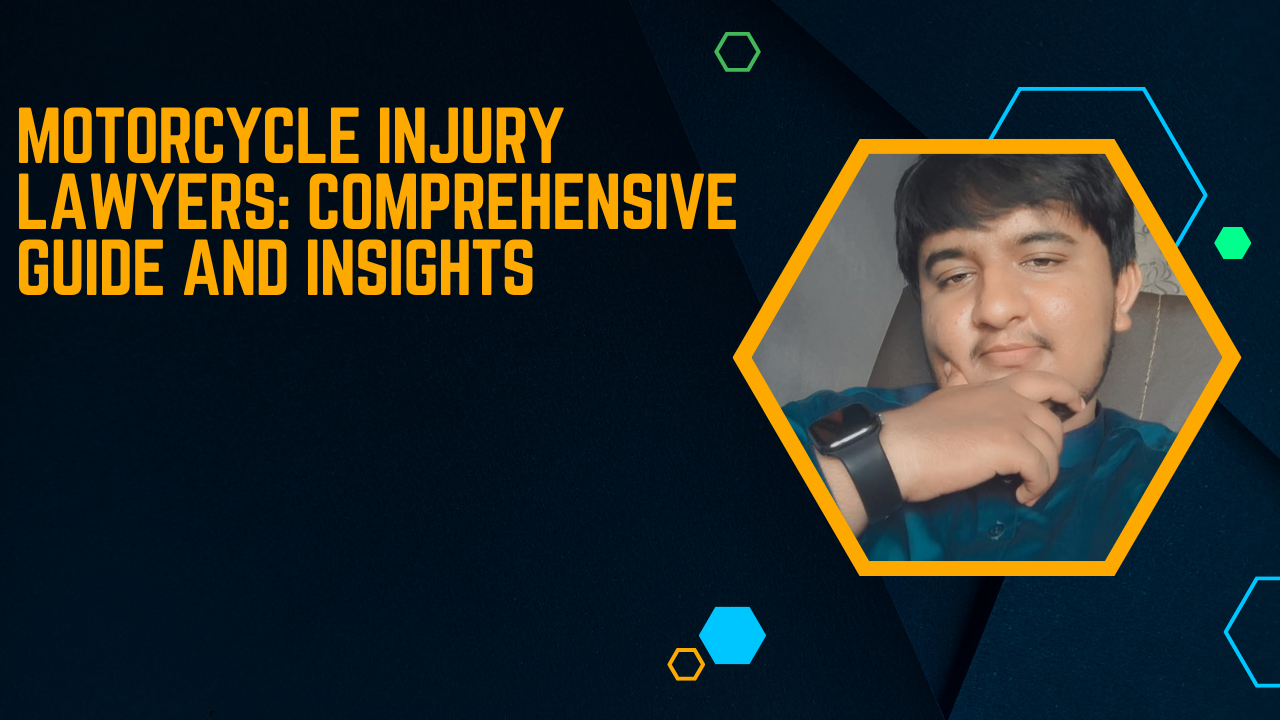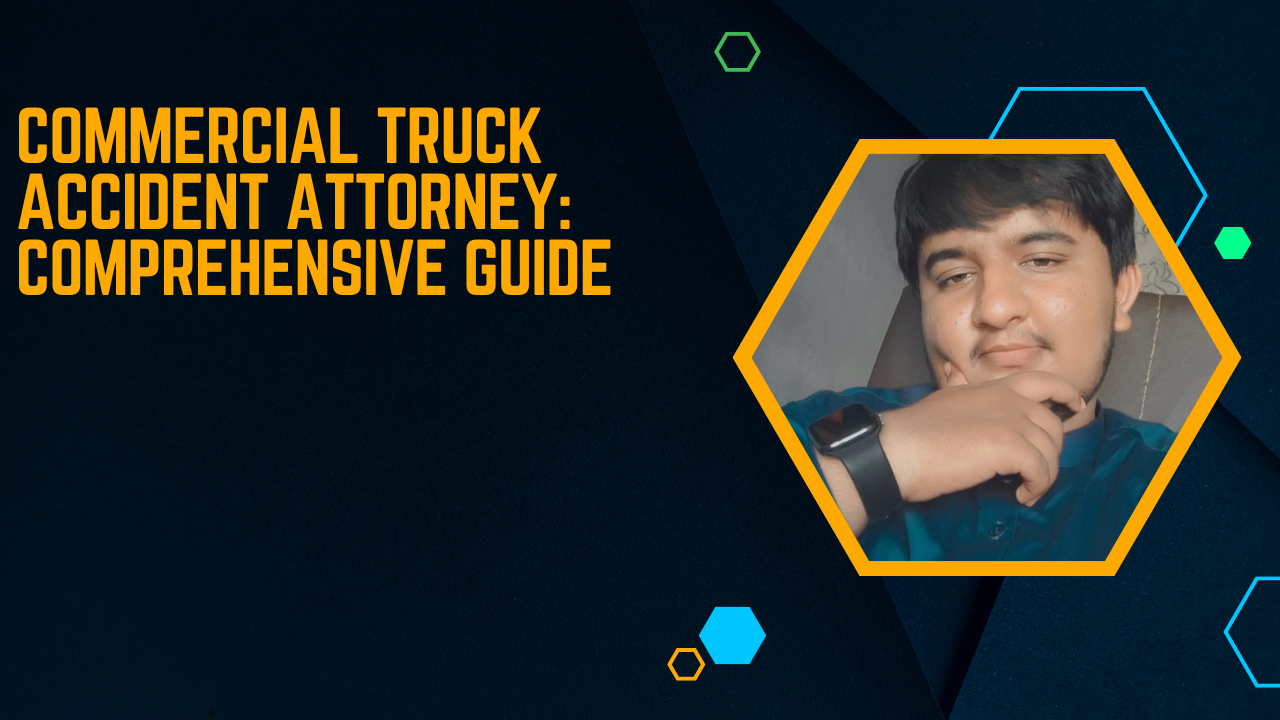Introduction
Accidents are unpredictable and can happen at any time, often leading to serious injuries and financial burdens. When faced with such situations, an accident attorney becomes an essential ally in navigating the complex legal landscape to secure the compensation and justice you deserve. This article delves deep into the role of accident attorneys, their importance, and how they can assist you in various scenarios.
What is an Accident Attorney?
Definition
An accident attorney, also known as a personal injury lawyer, specializes in providing legal representation to individuals who have been injured in accidents. These legal professionals focus on helping victims recover financial compensation for their injuries, medical bills, lost wages, and other damages.
Roles and Responsibilities
Accident attorneys perform a variety of tasks, including:
- Investigating accident scenes and gathering evidence
- Negotiating with insurance companies
- Filing lawsuits and representing clients in court
- Providing legal advice and guidance throughout the case
- Ensuring clients receive fair compensation
Differences Between General Lawyers and Accident Attorneys
While general lawyers may handle a broad range of legal issues, accident attorneys specialize in personal injury law. This specialization provides them with a deeper understanding of the nuances involved in accident cases, from complex medical terms to specific legal precedents.
Types of Accident Cases Handled
Car Accidents
Car accidents are among the most common types of personal injury cases. Accident attorneys help victims navigate the claims process, from dealing with insurance companies to pursuing litigation if necessary.
Motorcycle Accidents
Motorcycle accidents often result in severe injuries due to the lack of protection for riders. Attorneys specializing in these cases understand the unique challenges and risks associated with motorcycle accidents.
Truck Accidents
Truck accidents can be particularly complex due to the involvement of commercial vehicles and multiple parties. Experienced attorneys handle the intricacies of trucking regulations and liability issues.
Bicycle Accidents
Bicycle accidents, often involving collisions with motor vehicles, require a specific legal approach to ensure cyclists’ rights are protected and compensation is fair.
Pedestrian Accidents
Pedestrian accidents can lead to serious injuries or fatalities. Attorneys in these cases focus on securing compensation for medical expenses, lost income, and pain and suffering.
Workplace Accidents
Workplace accidents encompass a range of incidents, from construction site injuries to office mishaps. Accident attorneys help victims navigate workers’ compensation claims and potential third-party lawsuits.
Slip and Fall Accidents
Slip and fall cases involve injuries sustained due to hazardous conditions on someone else’s property. Attorneys work to prove negligence and secure compensation for the injured party.
Medical Malpractice
Medical malpractice occurs when healthcare professionals fail to provide adequate care, leading to patient harm. Specialized attorneys handle these complex cases, requiring extensive medical knowledge and legal expertise.
Product Liability
Product liability cases arise when defective or dangerous products cause injury. Attorneys in this field hold manufacturers and sellers accountable for the harm caused by their products.
Wrongful Death
Wrongful death cases involve fatalities resulting from negligence or misconduct. Attorneys help families seek justice and financial compensation for their loss.
Common Injuries in Accidents
Physical Injuries
Physical injuries from accidents can range from minor cuts and bruises to severe trauma, such as fractures, spinal cord injuries, and traumatic brain injuries.
Psychological Injuries
Accidents can also lead to psychological injuries, including post-traumatic stress disorder (PTSD), anxiety, and depression, significantly impacting victims’ quality of life.
Long-term Disabilities
Some accident victims suffer long-term disabilities, requiring ongoing medical care and affecting their ability to work and perform daily activities.
Legal Processes and Procedures
Initial Consultation
The initial consultation with an accident attorney involves discussing the details of the case, understanding the client’s needs, and outlining the potential legal steps.
Investigation and Evidence Gathering
Attorneys conduct thorough investigations, collect evidence, interview witnesses, and review medical records to build a strong case.
Filing a Claim
The process of filing a legal claim includes preparing necessary documents, submitting them to the appropriate parties, and adhering to legal deadlines.
Negotiation and Settlement
Many cases are resolved through negotiation and settlement, where attorneys work to reach an agreement with the opposing party without going to court.
Trial Process
If a settlement cannot be reached, the case proceeds to trial. Attorneys represent their clients in court, presenting evidence and arguing the case to a judge or jury.
Appeals
In some instances, cases may be appealed if the outcome is unfavorable. Attorneys handle the appeals process, seeking to overturn or modify the original decision.
Choosing the Right Accident Attorney
Qualifications and Experience
Selecting an attorney with the right qualifications and extensive experience in personal injury law is crucial for a successful case outcome.
Reputation and Reviews
Researching an attorney’s reputation and reading client reviews can provide insight into their professionalism and effectiveness.
Fee Structure
Understanding the attorney’s fee structure, including contingency fees and any upfront costs, is important for financial planning.
Communication Skills
Effective communication between the attorney and client ensures clarity and understanding throughout the legal process.
Case Success Rate
An attorney’s track record of successful cases can be an indicator of their ability to handle similar claims effectively.
Importance of Evidence in Accident Cases
Types of Evidence
Evidence in accident cases can include medical records, accident reports, witness statements, photographs, and video footage.
Gathering and Preserving Evidence
Timely collection and preservation of evidence are essential to support the claim and prevent it from being compromised.
Role of Expert Witnesses
Expert witnesses, such as medical professionals or accident reconstruction specialists, provide crucial testimony to strengthen the case.
Understanding Insurance Claims
Types of Insurance Coverage
Different types of insurance coverage, including liability, uninsured motorist, and personal injury protection, play a role in accident claims.
Filing an Insurance Claim
Filing an insurance claim involves submitting detailed information about the accident and injuries to the insurance company.
Dealing with Insurance Adjusters
Insurance adjusters assess claims and negotiate settlements. Attorneys help clients navigate these interactions to ensure fair compensation.
Common Challenges in Insurance Claims
Challenges in insurance claims can include denied claims, undervalued settlements, and delays. Attorneys work to overcome these obstacles.
Settlement vs. Litigation
Pros and Cons of Settling Out of Court
Settling out of court can save time and legal fees but may result in lower compensation compared to a trial verdict.
When to Opt for Litigation
Litigation may be necessary when a fair settlement cannot be reached or when the case involves significant disputes over liability or damages.
Understanding Settlement Offers
Attorneys help clients evaluate settlement offers to determine if they adequately cover the damages and losses incurred.
Preparing for Court
If a case goes to trial, thorough preparation, including witness testimonies and evidence presentation, is critical for success.
Financial Compensation and Damages
Types of Damages
Damages in accident cases can include medical expenses, lost wages, pain and suffering, and punitive damages.



